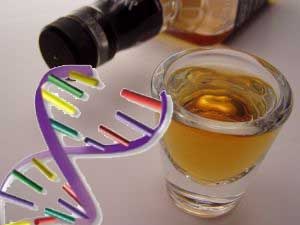현재 위치:홈 > 뉴스현황 > Press Events > New Study Shows Prom...
저자: 업로드:2017-09-21 조회수:
Scientists in North and South America have developed a form of gene therapy that could feasibly help to treat alcoholism by causing unpleasant physical side effects in individuals who imbibe. The approach harnesses a short hairpin RNA (shRNA), which is delivered to liver cells using an adeno-associated viral (AAV) vector to prevent expression of a liver enzyme that is involved in metabolizing ethanol into acetate.
The researchers, headed by Anamaria C. Sanchez, Ph.D., from the University of Chile in Santiago, and R. Jude Samulski, Ph.D., from the University of North Carolina, Chapel Hill, conclude that their in vitro studies “suggest that gene therapy could be a useful tool for the treatment of alcoholism.” They report on their research in Human Gene Therapy, in a paper entitled, “AAV Gene Therapy for Alcoholism: Inhibition of Mitochondrial Aldehyde Dehydrogenase Enzyme Expression in Hepatoma Cells.”
Alcohol is the most commonly used addictive substance globally and causes some 3.3 million deaths every year, which approximates to 5.9% of all deaths, Prof. Sanchez and colleagues write. In the U.S., excessive alcohol consumption in 2010 was estimated to have cost the nation $250 billion, primarily due to loss in productivity, healthcare, and societal ills. There are currently three approved medications in the U.S. for treating alcohol dependence—disulfiram, naltrexone, and acamprosate. However, as Dr. Sanchez et al. point out, none is widely prescribed because they have limited efficacy, cause side effects, and patient compliance is poor.

Ethanol is metabolized in the liver in two stages: first the oxidation of ethanol to form acetaldehyde. This reaction is catalyzed by the cytosolic enzyme alcohol dehydrogenase (ADH). The acetaldehyde is then converted to acetate by a mitochondrial isoform of the enzyme aldehyde dehydrogenase, ALDH2.
About half of the Asian population has one copy of the normal ALDH2 gene and one mutant copy of the gene that encodes an inactive enzyme. These heterozygous individuals have a reduced capacity to metabolize acetaldehyde, so when they drink alcohol, the acetaldehyde accumulates in the blood and causes physical effects such as facial flushing, dizziness, hypotension, and palpitations. This is enough to prompt people to reduce their alcohol consumption and effectively prevent alcoholism.
ALDH2 is a recognized target for treating alcohol dependency. Dr. Sanchez and colleagues have now developed an shRNA that is designed to silence the expression of ALDH2 and can be delivered to cells using a self-complementary AAV2 (scAAV2) vector. They tested the shRNA in both a specially developed ALDH2-expressing human liver cell line, HEK-293/ALDH2, and to HepG2 liver